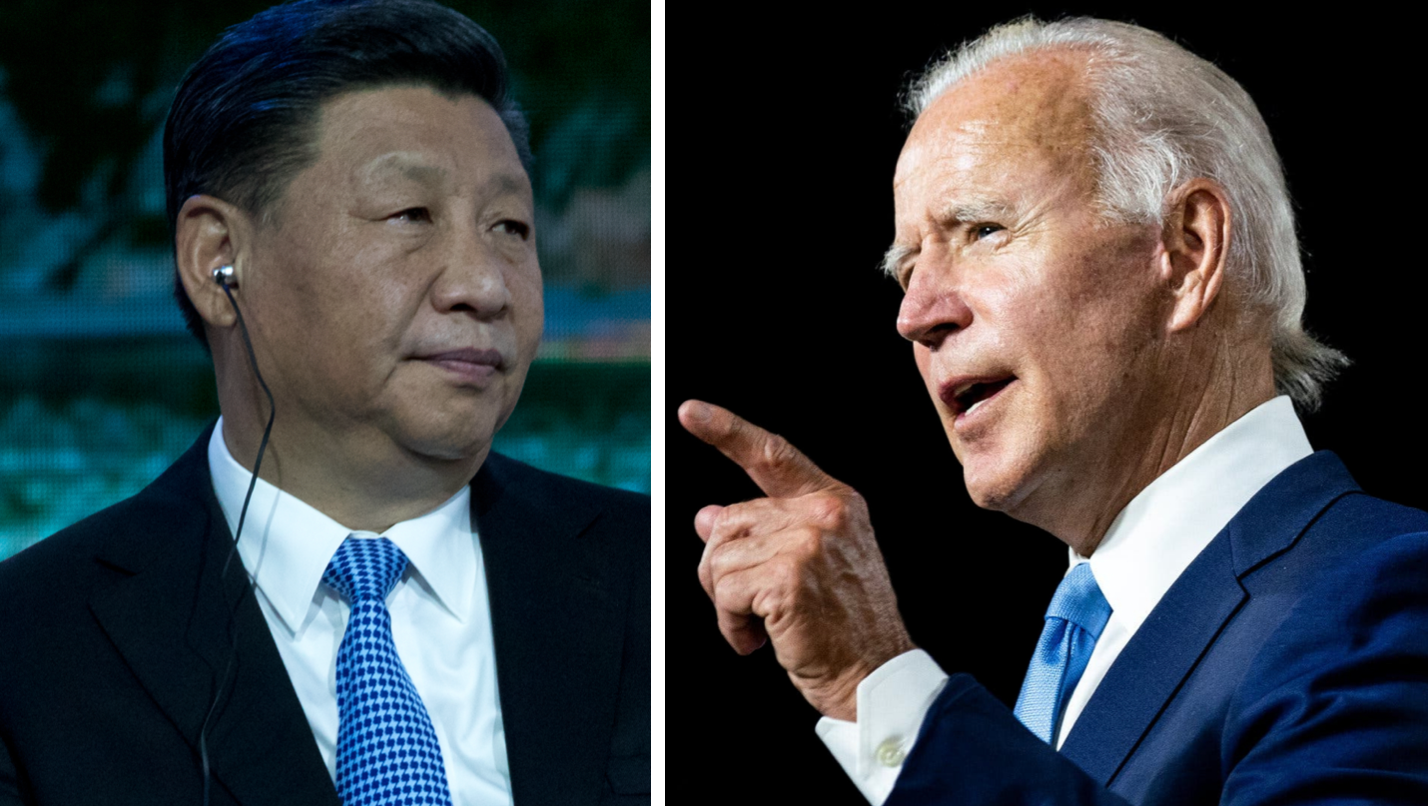As U.S.-China tensions have risen the past few years, several U.S. and Taiwanese officials have made alarming warnings that Beijing will launch an invasion of the island by 2027 or as early as 2025, potentially triggering a disastrous war between the two powers.
So NBC News’ report Wednesday filling in some of the details of the November meeting between President Joe Biden and Xi Jinping should have been a cause for hope that this conflict could be avoided. According to the report, Xi told Biden that Beijing plans to reunify China and Taiwan and that it prefers to do so peacefully — the position China has held for decades, and which has helped lay the basis for peaceful relations between the two states.
Maybe more importantly, Xi assured the U.S. president that predictions of an impending invasion of Taiwan “were wrong because he has not set a time frame,” NBC News reported.
In other words, Xi reiterated that he remained committed to long-standing Chinese policy that had underwritten decades of peace and regional stability, and that contrary to some headline-grabbing speculation, there were no plans to change that anytime soon. It should have inspired a collective sigh of relief from all those concerned about the security of Taiwan, let alone anyone worried about a direct U.S.-China war.
But tell that to the hawks who dominate U.S. discourse on China, who quickly seized on the report to irresponsibly make the exact opposite claim: That Xi’s statement was tantamount to a declaration of war.
Sen. Lindsey Graham immediately called the report “beyond unnerving,” and said it would inspire him to link up with senators to ply Taiwan with more military aid and weapons and to “draft pre-invasion sanctions from hell” against China — both actions that Beijing could view as provocative. GOP presidential candidate Nikki Haley charged that according to the report, “Xi Jinping told Joe Biden that China will take Taiwan” and that as a result, the United States needs “a president who will stand up to our enemies,” rather than treat such an announcement as “business as usual,” as Biden allegedly had.
Other lawmakers had similar reactions. “Xi Jinping wants to take Taiwan. The United States must project strength,” wrote Rep. Mark Green, who chairs the House Committee on Homeland Security and sits on the House Foreign Affairs Committee. “Xi Jinping feels emboldened enough by President Biden’s weakness to tell him to his face that Communist China believes that it’s only a matter of time before they take Taiwan,” wrote Sen. Katie Boyd Britt, ranking member of the Senate Homeland Security Committee. “It’s time to replace appeasement with deterrence.”
Other China hawks, like former Donald Trump advisor Elbridge Colby, former Josh Hawley advisor and current Heritage Foundation policy advisor Alex Velez-Green, journalist Bari Weiss, and former National Counterintelligence and Security Center Director William Evanina, spun the story in a similar fashion. The latter painted a particularly alarmist picture, warning that “China will first paralyze the U.S. with cyber attacks on critical infrastructure resulting in panic and little appetite to assist Taiwan.”
Readers glancing at some of the headlines of the stories re-reporting the NBC news would come away with the same kind of impression — that Xi had effectively told Biden that a Chinese invasion of Taiwan was inevitable in a major show of disrespect:
- “Xi warned Biden he plans to take Taiwan — by any means necessary” (New York Post)
- “Xi straight-up told Biden that China is going to take over Taiwan: report” (Business Insider)
- “China Will Take Taiwan, Xi Warned Biden During Meeting” (Washington Free Beacon)
- “Xi Told Biden To His Face That Beijing Will Reunify Taiwan With China: REPORT” (Daily Caller)
- “Xi warned Biden during summit that Beijing will reunify Taiwan with China” (MSNBC News)
One Bloomberg News anchor, meanwhile, called it a “nightmare scenario” and a “bombshell story.”
This confusion about the meaning of Xi’s reported comments appeared to extend to the very reporters who broke the story. The NBC report frames the remarks as part of a trend of “saber-rattling” by the Chinese president on Taiwan, while one of the reporters on the byline, Kristen Welker, said in a TV appearance that the statement “lands differently when [Xi] is speaking to a president and against the background of these tensions” and when “the whole purpose of this meeting was to bring down the temperature.”
Yet if anything, Xi’s words should have served that very purpose of lowering tensions, by denying U.S. suspicions of a planned Chinese invasion in the next few years.
It’s a measure of the anti-China climate in Washington that a story about the Chinese president effectively tamping down recent alarming headlines in the United States about impending war was widely painted by commentators and politicians as the exact opposite — and used to justify still more policies of deterrence instead of diplomacy.
- War with China over Taiwan won't end well for anyone ›
- Warnings of an imminent Chinese invasion of Taiwan miss the mark ›















